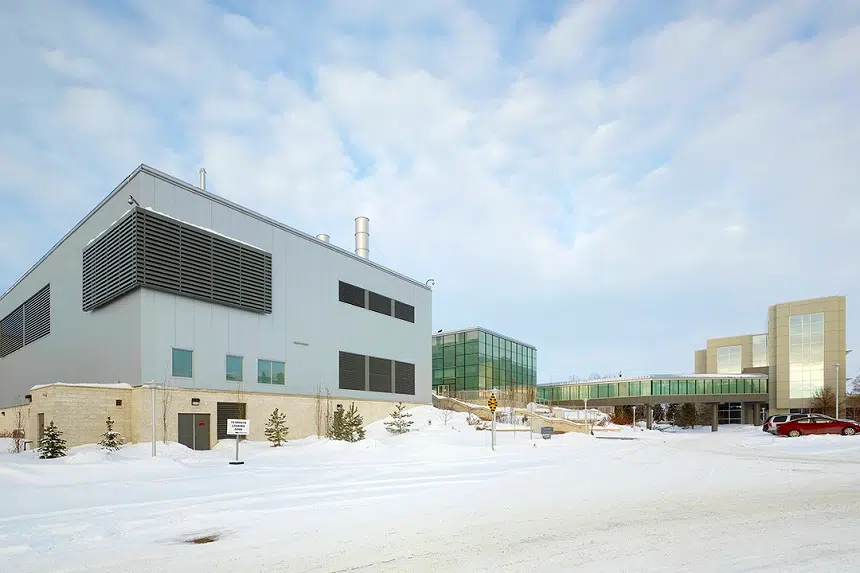Premier Scott Moe wants to find a made-in-Saskatchewan solution to a nationwide issue.
While announcing Tuesday a funding commitment to the Vaccine and Infectious Disease Organization (VIDO) at the University of Saskatchewan, Moe once again called out the federal government for its slow delivery of COVID-19 vaccines to his province and others.
“It’s almost inexplicable that Canada has fallen so far behind on the vaccines,” Moe said during a media conference. “I’m not here today to point fingers or to second-guess why that may have occurred, but I do want to ensure that it never happens again.”
To that end, Moe’s government announced it will provide $15 million of new funding to pandemic research being done by VIDO-InterVac.
A COVID vaccine developed by VIDO-InterVac currently is undergoing clinical trials. The government hopes the new funding will help the organization continue the process of developing COVID vaccines — and others — by becoming Canada’s Centre for Pandemic Research.
“Saskatchewan is the leader in Canada in delivering vaccines,” Moe said. “We can, we should and we will be the leader in researching, developing and producing these vaccines — producing them not just for Saskatchewan residents but again producing them for all Canadians.
“We’re asking the federal government and the prime minister to support this proposal to ensure that Canada always has the ability to develop and produce our own life-saving vaccines and to ensure that the vaccine shortage that we are experiencing now at the most critical moment in our lifetimes never happens again.”
“This support from the Government of Saskatchewan is critical in strengthening VIDO’s position as a National Centre focused on pandemic research and preparedness,” VIDO director Dr. Volker Gerdts said in a media release. “The investment will help ensure the necessary infrastructure is in place to protect Canadians from future emerging infectious diseases.”
In the release, the province says the money is contingent on the federal government also providing funding. Moe has written to the feds to support VIDO-InterVac’s request for $45 million for ongoing operating funding for the project.
“I have mentioned VIDO a number of times in our conversations with the prime minister and spoken specifically to this ask with (Intergovernmental Affairs) Minister (Dominic) LeBlanc, Minister (Chrystia) Freeland — the deputy prime minister — (and) the minister of finance,” Moe said.
The premier said the idea has received a “very positive response” in some circles, “and I believe the positive response is due to everybody realizing the benefits to all Canadians of this investment.”
Earlier this month, a City of Saskatoon committee supported VIDO’s request for $250,000 to construct the $65-million Centre for Pandemic Research. The city’s funding also is contingent on the support of the federal and provincial governments.
VIDO is building a vaccine manufacturing facility that will be capable of producing up to 40 million vaccine doses per year. Construction is expected to be completed this year, with vaccine certification in 2022.
“To be clear, this (announcement Tuesday) is unlikely to have much of an impact on our current COVID vaccination drive,” Moe said. “We expect Saskatchewan residents to be fully vaccinated before the end of 2021.
“However, we should be ready to produce millions of doses of vaccines to respond to any new viruses that may present or variants of the COVID virus that may present in the future and respond as required.”
VIDO’s Centre for Pandemic Research would include an upgrade to Level 4 containment facilities, providing the capability to work safely with the most serious and deadly human and animal diseases.
At this time, the only Level 4 facility in Canada is the National Microbiology Lab in Winnipeg.
In the release, the province said the centre will also provide critical animal housing for several species and will reduce the time needed to advance vaccine development to human clinical trials.
As well, the Centre for Pandemic Research would give VIDO the capacity to develop the workforce and train the talent needed for a resilient vaccine and therapeutic ecosystem in Canada.
Two other universities — Laval and McMaster — also are bidding to be the site of the centre.







